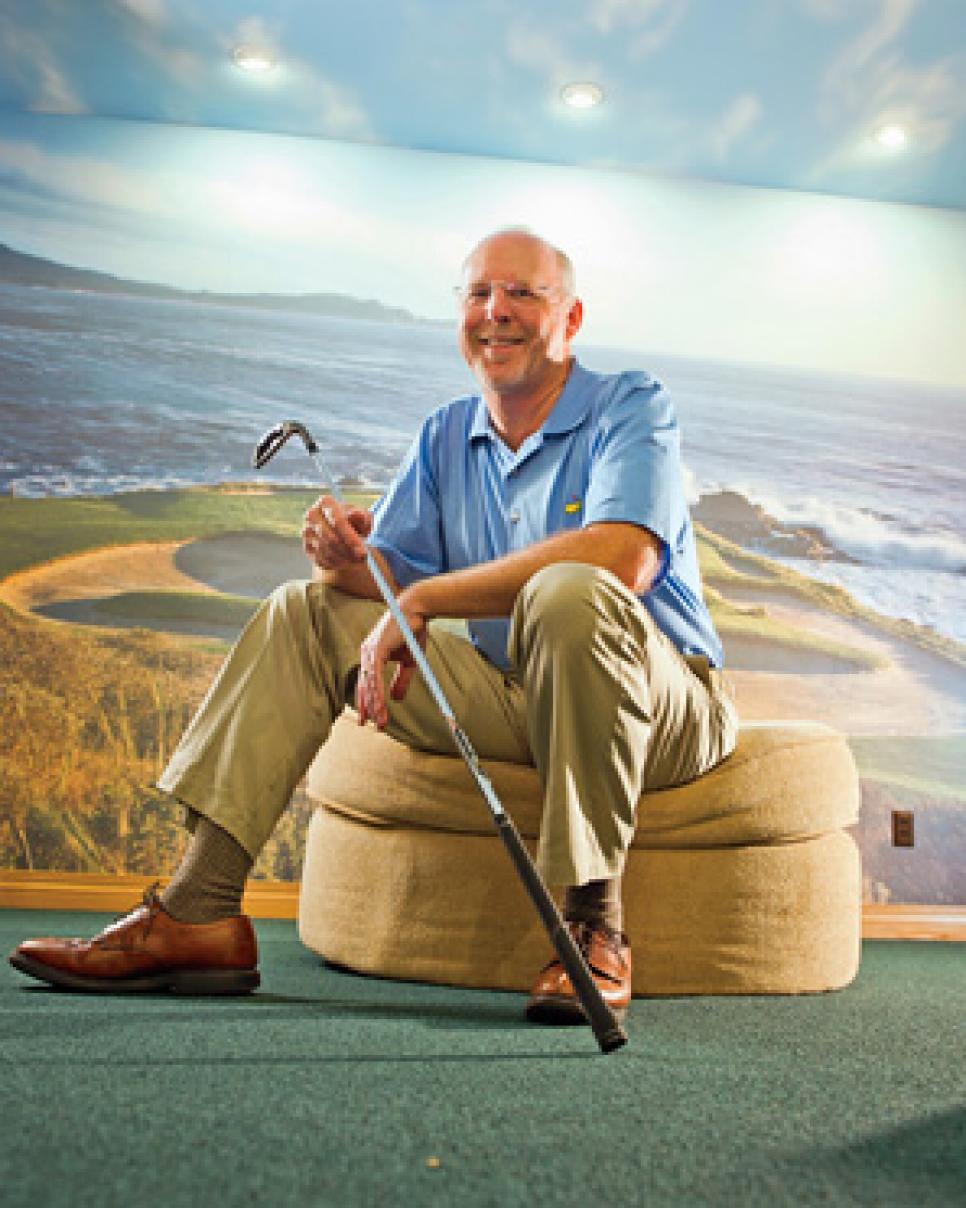A Golf Trip With My Dad I Won't Forget

A home mural of Pebble Beach's seventh hole reminds Bramson of his most pivotal day.
When I was 14 my dad surprised me with a golf trip we couldn't afford. We flew to San Francisco from our home in Wisconsin, rented a car and spent a week touring the coastline and playing golf, culminating in a surprise 36-hole finale at Pebble Beach and Spyglass Hill on our last day.
As a new golfer, I didn't appreciate the significance of the venue: Two summers earlier I had started caddieing at our local country club and was just getting into the game. But as a son, I knew the trip was an extravagance. Dad had split with his advertising firm to start an agency, which he was running out of our basement. He liked that he could spend more time with me, my sister and my mom, but landing enough clients was a struggle. For him to take the time and spend the money on something unforgettable—with me—was very special.
Of course, it wasn't like we stayed at The Lodge and ate caviar. This was 1973 when you didn't have to stay on property to book a tee time more than a day in advance. We slept in some Holiday Inn a short drive away. We played Pebble first: I carried my bag, and Dad took a pushcart. I shot 104, edging the old man as I had started to do more frequently. My dad couldn't hit woods and refused to carry them. Instead he used his beloved 1-iron off the tee. In the three-minute drive to Spyglass we scarfed down some hamburgers to fortify ourselves. It was an overcast day, but the air coming off the ocean was warm.
Two years later, my dad died suddenly and unexpectedly of acute leukemia. It was less than three weeks from the time he noticed the strange bruises on his arms and saw a doctor to the day he died. I was playing in a high school golf match when he passed away.
Life can be hard enough at 16, but losing my dad was devastating. He had very little life insurance, which my mom lost in a bad investment that she was talked into. She went back to teaching fourth grade, and I worked more and more at Westmoor Country Club, caddieing and in the bag room, to make money and keep sane. After work, when I played alone, I would pencil "Dad" underneath my name on the scorecard. A few years later Mom would declare bankruptcy and lose the house, but my sister and I were both able to attend college.
I went to the University of Wisconsin in Madison on a Chick Evans Caddie Scholarship. As a six-year looper with a clean record and good grades, a respectable 7-handicap and substantial financial need, I guess I struck the green blazers of the selection committee as a prime candidate. Chick Evans, a caddie who is the only golfer other than Bobby Jones to win the U.S. Amateur and U.S. Open in the same year, set up a trust in 1929 to start the scholarship program.
I'm 50 now, five years older than my dad was when he died. My life is full and vibrant. I have a wife, a daughter and a son. In addition to my work as a financial planner helping families and small businesses manage assets, I've written a series of books about real-life financial planning. I own a marketing and consulting firm, but I always make time for golf trips. Earlier this year I took my family to Ireland—my daughter is a more serious golfer than my son—and I'm a part-time caddie at Augusta National. A few times a year I fly or drive down from Wisconsin.
It fulfills me working to prevent what happened to my family from happening to others. Of all the lessons I've learned about finance, the most important is that experiences are worth more than cash. That trip to Pebble Beach saved my life, not only in helping me deal with my dad's death, but for fueling my love of golf. Those two rounds were the best investment my dad could've made.